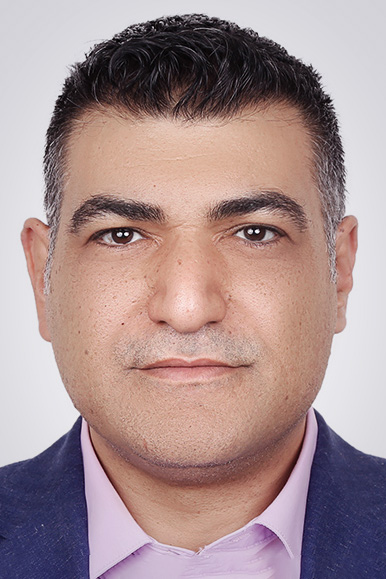

 There is an old saying that "bad news comes in threes." Domain name service providers have witnessed two unsettling developments in the past few weeks. The third, still winding its way through the U.S. Congress, could have enormous ramifications. Registries and registrars, in particular, need to speak up or resign themselves to the consequences. more
There is an old saying that "bad news comes in threes." Domain name service providers have witnessed two unsettling developments in the past few weeks. The third, still winding its way through the U.S. Congress, could have enormous ramifications. Registries and registrars, in particular, need to speak up or resign themselves to the consequences. more
 Some of ICANN's current proceedings on the introduction of new generic top level domains (gTLDs) provide a case study on how not to develop public policy. In particular, the Rights Protection Mechanism proceedings, with serious implications for trademark owners, have followed a course that does not correspond to the ideal of ICANN's bottom-up, consensus-based processes for policy development. More importantly, these proceedings are effectively unilateral developments in international law without the benefit of treaties or international conventions. more
Some of ICANN's current proceedings on the introduction of new generic top level domains (gTLDs) provide a case study on how not to develop public policy. In particular, the Rights Protection Mechanism proceedings, with serious implications for trademark owners, have followed a course that does not correspond to the ideal of ICANN's bottom-up, consensus-based processes for policy development. More importantly, these proceedings are effectively unilateral developments in international law without the benefit of treaties or international conventions. more
 TechCrunch reports that its brand has been taken as a Twitter name, and that there is a landrush going on to get these names, which are already trading for money. The problem is so bad that a name brokerage, Tweexchange, has sprung up to get to facilitate sales. more
TechCrunch reports that its brand has been taken as a Twitter name, and that there is a landrush going on to get these names, which are already trading for money. The problem is so bad that a name brokerage, Tweexchange, has sprung up to get to facilitate sales. more
 On Wednesday, Project Honey Pot filed an unusual lawsuit against "John Does stealing money from US businesses through unauthorized electronic transfers made possible by computer viruses transmitted in spam." Their attorney is Jon Praed of the Internet Law Group, who is one of the most experienced anti-spam lawyers around, with whom I have worked in the past. more
On Wednesday, Project Honey Pot filed an unusual lawsuit against "John Does stealing money from US businesses through unauthorized electronic transfers made possible by computer viruses transmitted in spam." Their attorney is Jon Praed of the Internet Law Group, who is one of the most experienced anti-spam lawyers around, with whom I have worked in the past. more
 This case involves an alleged domain name theft. Solid Host is a web host and initial owner of the domain name solidhost.com, which it registered through eNom in 2004. Solid Host claims that in 2008, a security breach at eNom allowed an unknown interloper (Doe) to steal the domain name and move the registration to NameCheap. Doe also acquired NameCheap's "WhoisGuard" service, a domain name proxy service that masked Doe's contact information in the Whois database. Solid Host contacted Doe and sought the domain name; Doe asked for $12,000, and Solid Host took a pass... more
This case involves an alleged domain name theft. Solid Host is a web host and initial owner of the domain name solidhost.com, which it registered through eNom in 2004. Solid Host claims that in 2008, a security breach at eNom allowed an unknown interloper (Doe) to steal the domain name and move the registration to NameCheap. Doe also acquired NameCheap's "WhoisGuard" service, a domain name proxy service that masked Doe's contact information in the Whois database. Solid Host contacted Doe and sought the domain name; Doe asked for $12,000, and Solid Host took a pass... more
 Potential trademark Rights Protection Mechanisms (RPM) at the 2nd level can be divided into three main areas -- each defined by their time relative to Top-Level Domain (TLD) launch... Of these, we believe the third, "After Launch," is the most fruitful path to explore. We believe it offers the most potential to protect the rights of trademark holders, the best balance between TM rights and the legitimate rights of others who may want to register names , and the most benefit to the trademark community at the lowest cost to them... more
Potential trademark Rights Protection Mechanisms (RPM) at the 2nd level can be divided into three main areas -- each defined by their time relative to Top-Level Domain (TLD) launch... Of these, we believe the third, "After Launch," is the most fruitful path to explore. We believe it offers the most potential to protect the rights of trademark holders, the best balance between TM rights and the legitimate rights of others who may want to register names , and the most benefit to the trademark community at the lowest cost to them... more
Trademark issues are emerging with the upcoming introduction of new generic top-level domains on the internet, and the board members of the body introducing the names has passed the ball back to intellectual property experts to find answers. The Intellectual Property Constituency of the Internet Corporation for Assigned Names and Numbers (ICANN) has been asked to work out a viable solution "no later than 24 May 2009." Trademark issues have been defined as one of four overarching issues still to be solved before ICANN can finalise the application procedure for the next hundreds or thousands of top-level domains from .eco to .music. more
 I've watched coverage of Microsoft's bid for Yahoo! and the related maneuvering between Google and Yahoo!. The explanations are not very convincing. Microsoft doesn't need Yahoo's search technology or their morale-impacted work force. Yahoo's search market share continues to decline and there's little of strategic relevance in the rest of their business. What's the attraction? more
I've watched coverage of Microsoft's bid for Yahoo! and the related maneuvering between Google and Yahoo!. The explanations are not very convincing. Microsoft doesn't need Yahoo's search technology or their morale-impacted work force. Yahoo's search market share continues to decline and there's little of strategic relevance in the rest of their business. What's the attraction? more
 BioCryst Pharmaceuticals, Inc., of Birmingham, Alabama, challenged registration of domain name www.biocrystpharmaceuticals.com. Respondent used domain name to criticize the Complainant's business (BioCryst Pharmaceuticals, Inc. v. Kumar Patel, Case No. D2005-0674). Panelist Daniel Gervais denied relief, stating... more
BioCryst Pharmaceuticals, Inc., of Birmingham, Alabama, challenged registration of domain name www.biocrystpharmaceuticals.com. Respondent used domain name to criticize the Complainant's business (BioCryst Pharmaceuticals, Inc. v. Kumar Patel, Case No. D2005-0674). Panelist Daniel Gervais denied relief, stating... more
 The Internet is often a lawless place. Everyone knows that there are many tricks and traps lurking on the Internet, just waiting to prey on unsuspecting and innocent users. Some of these traps will trash your computer while others will turn your PC into a zombie that will broadcast messages at the virus writer's command. ...The list of annoyances and downright criminal activities seem endless. ...To make the Internet a safer place both legislators and law enforcement are now focusing on the Internet. In the crossfire that's taking place there are many ideas that are being offered up. Some of them are good and some are not. One bad decision that was recently forced upon the Internet community (without hearings -- more on this later) was to eliminate private domain name registrations for .US domain names. ...It's important to understand the difference between privacy and anonymity. more
The Internet is often a lawless place. Everyone knows that there are many tricks and traps lurking on the Internet, just waiting to prey on unsuspecting and innocent users. Some of these traps will trash your computer while others will turn your PC into a zombie that will broadcast messages at the virus writer's command. ...The list of annoyances and downright criminal activities seem endless. ...To make the Internet a safer place both legislators and law enforcement are now focusing on the Internet. In the crossfire that's taking place there are many ideas that are being offered up. Some of them are good and some are not. One bad decision that was recently forced upon the Internet community (without hearings -- more on this later) was to eliminate private domain name registrations for .US domain names. ...It's important to understand the difference between privacy and anonymity. more
In its February 18, 2005 press release, WIPO has reported filing an average of 3.4 UDRP and UDRP-based cases per calendar day in 2004, bringing the total number of cases received in 2004 to 1,179 -- an increase of 79 cases (or 6.6%) as compared to 2003. Also mentioned in the report is a 37 percent increase in ccTLDs cases over the previous year. Listed below are a number of additional facts and figures reported... more
 Poland thwarted a large-scale cyberattack on its energy grid without disruption, offering a rare case study in critical infrastructure resilience, decentralised energy governance, and the balancing act between openness and digital security. more
Poland thwarted a large-scale cyberattack on its energy grid without disruption, offering a rare case study in critical infrastructure resilience, decentralised energy governance, and the balancing act between openness and digital security. more
 Internet governance is shifting from participatory forums to security-driven mandates. As authority accelerates ahead of legitimacy, technical systems face growing instability and operators absorb the risks of politically motivated control. more
Internet governance is shifting from participatory forums to security-driven mandates. As authority accelerates ahead of legitimacy, technical systems face growing instability and operators absorb the risks of politically motivated control. more
 This case had a bit of a weird result -- even though the brand owner had a mark that was 20 years old, and the alleged cybersquatter, in the meantime, acquired a domain name on the open market identical to that mark, because the domain name was first registered (by an unrelated party) before the brand owner's trademark rights arose, there was no relief under federal trademark law. more
This case had a bit of a weird result -- even though the brand owner had a mark that was 20 years old, and the alleged cybersquatter, in the meantime, acquired a domain name on the open market identical to that mark, because the domain name was first registered (by an unrelated party) before the brand owner's trademark rights arose, there was no relief under federal trademark law. more
 Last year, Facebook created its widely dubbed "Supreme Court" (officially the Oversight Board) in an effort to outsource some of the platform's most difficult content decisions. By all accounts, Facebook hoped the Board would have global legitimacy to make the toughest content decisions and help avoid reputational damage for being biased, arbitrary, tone-deaf, or worse. more
Last year, Facebook created its widely dubbed "Supreme Court" (officially the Oversight Board) in an effort to outsource some of the platform's most difficult content decisions. By all accounts, Facebook hoped the Board would have global legitimacy to make the toughest content decisions and help avoid reputational damage for being biased, arbitrary, tone-deaf, or worse. more